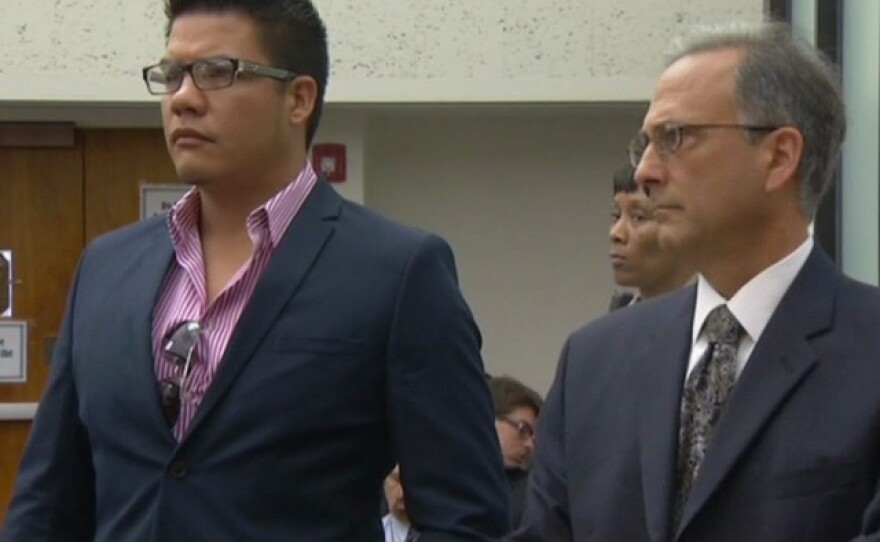A man who knowingly infected another man with the HIV virus was sentenced Monday to nearly six months in jail.
Thomas Miguel Guerra, 30, previously pleaded no contest to a misdemeanor charge of willfully exposing a person to an infectious disease.
Had the case been charged as a felony, Guerra — who worked as a landscape architect — could have faced up to eight years in prison, said Gerry Braun of the San Diego City Attorney's Office.
City Attorney Jan Goldsmith issued a statement saying: "We hope this tragic case helps to educate people that they have a legal obligation — as well as a moral and ethical obligation — to inform their sex partners of their HIV status."
Prosecutors said the victim called police after he and Guerra broke off their romantic relationship.
At Monday afternoon's sentencing hearing, Guerra told Judge Kathleen Lewis that while he has sympathy for the victim, he doesn't have remorse because he doesn't feel he did anything wrong.
"I would never do what I'm accused of doing," the defendant said. "I did not rape this person. I am not a monster."
But Deputy City Attorney Jill Cristich said the defendant admitted not taking his HIV medication for five years beforehand.
The judge said the crime was not a case of "he said, he said," but rather "shocking" and "outrageous" behavior.
Lewis called the crime "unimaginable" and said she was "speechless" by Guerra's lack of insight into what he did.
Guerra was sentenced to 179 days in jail under the terms of probation he said he refused to accept, but which the judge imposed anyway.







